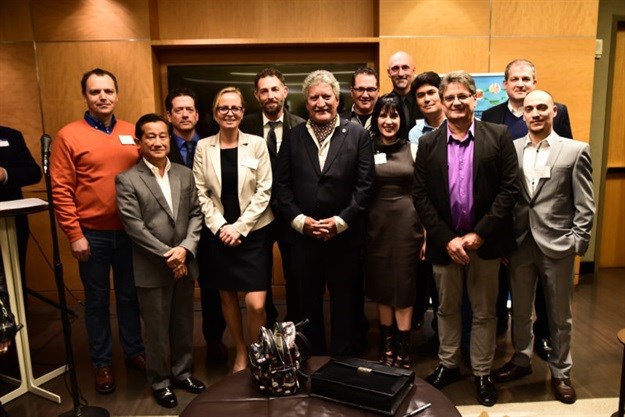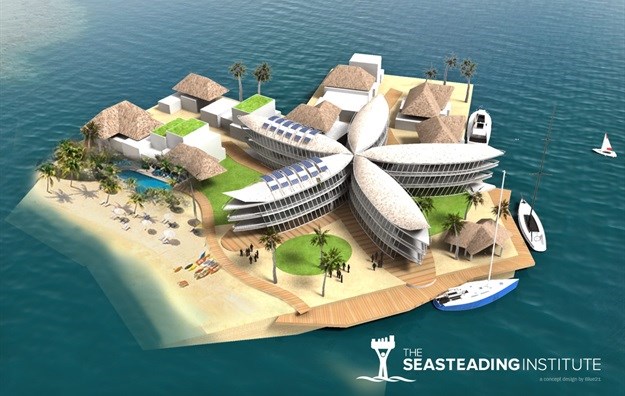
In the news
French Polynesia signs agreement for Floating Island Project

The Seasteading Institute announced the formation of a new company, Blue Frontiers, to construct the Floating Island Project. The project aims to advance French Polynesia’s Blue Economy initiative, offer an opportunity to adapt to rising sea levels, and create a fresh space for pioneering social innovation.
Last year, French Polynesian President Edouard Fritch invited an international delegation from The Seasteading Institute to examine several potential sites near the French Polynesian islands of Tahiti, Tupai, and Raiatea. The team met personally with Teva Rohfristch, minister for economic recovery, the blue economy, and digital policy; Sylviane Terooatea, mayor of Raiatea, and Gaston Tong Sang, former president and mayor of Bora Bora and Tupai.
Economic benefits for French Polynesia
The MOU obligates The Seasteading Institute to conduct an economic analysis to demonstrate the economic benefits for French Polynesia, as well as an environmental assessment to assure the health of the ocean and seabed. As soon as these studies are complete, French Polynesia will collaborate with The Seasteading Institute to develop a “special governing framework” to construct sustainable floating islands.
“The Seasteading Institute and the government of French Polynesia will draw from the best practices of more than 4000 existing special economic zones around the world to create a ‘special economic seazone,’” said Hencken. “The seazone will combine the advantages of French Polynesia’s geopolitical location with unique regulatory opportunities specifically designed to attract investors.”
Seasteading investors will self-fund the initial studies and the construction of the floating islands. The pilot project is expected to cost between $10m and $50m.
“Our sustainable modular platforms are designed by the Dutch engineering firm Blue21, who showcased their engineering ingenuity with the famed Floating Pavilion in Rotterdam,” said Joe Quirk, co-author with Patri Friedman of the book, Seasteading: How Ocean Cities Will Change the World, to be published in March.
Uniquely suited to seasteading
“After many long years of work by our staff and global network of advocates, I’m incredibly excited for the chance to work with French Polynesia, which as an archipelago is uniquely suited to seasteading,” said Patri Friedman, founder and chairman of The Seasteading Institute’s board of directors.

Businessman, and former minister of tourism for French Polynesia, Marc Collins is enthusiastic about The Seasteading Institute’s vision. “Polynesian culture has a long history of seafaring across the Pacific Ocean that will contribute to this ambitious project. More than most nations, our islands are impacted by rising sea levels, and resilient floating islands could be one tangible solution for us to maintain our populations anchored to their islands. For many Polynesians, leaving our islands is not an option.”
Blue Frontiers will create new clean-tech and blue economy jobs that will attract both international and local investment. “We need to create new clean-tech and blue economy jobs for our youth, and this project has the potential to be a real game-changer locally,” Collins said. “This project could help us retain our bright minds, who would otherwise emigrate for work.”









